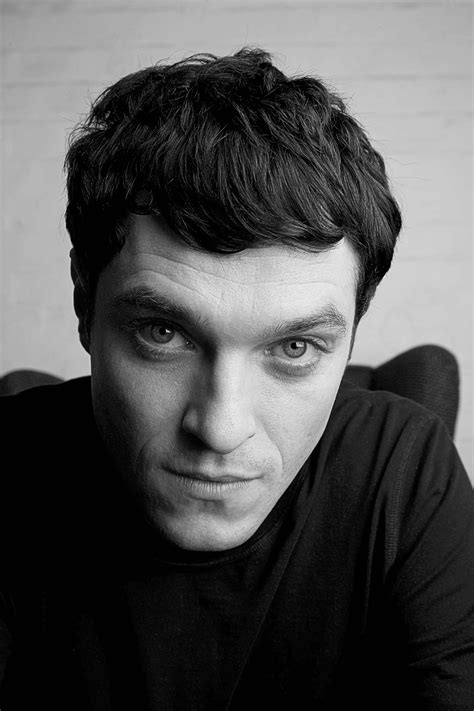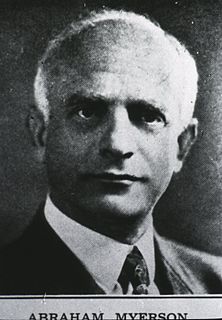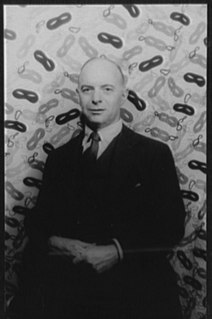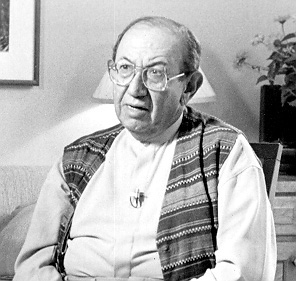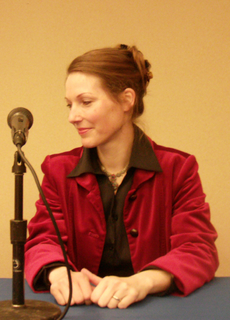Top 183 Neurosis Quotes & Sayings - Page 3
Explore popular Neurosis quotes.
Last updated on April 18, 2025.
The agnostic, the skeptic, is neurotic, but this does not imply a false philosophy; it implies the discovery of facts to which he does not know how to adapt himself. The intellectual who tries to escape from neurosis by escaping from the facts is merely acting on the principle that “where ignorance is bliss, ‘tis folly to be wise.
When you are dealing with a serious compulsion or addictive pattern, then by definition self-will, self-discipline, and any other machinations of the conscious mind are not enough by themselves to handle the problem. It is like a breaker switch in your brain is simply flipped. Anybody who has had this kind of a problem knows that it doesn't matter how intelligent you are. Sigmund Freud said, "Intelligence will be used in the service of the neurosis."
Psychoanalytic categories such as "neurosis", "psychosis", "mania", and "fixation" have become part of our everyday psychological vocabulary and we now routinely interpret states of anxiety, excitement, or depression in terms of physiological factors involving levels of serotonin, adrenalin, or blood sugar. To say that the characterization of thinking has a normative function that is irreducible to neurophysiological processing is not to say that our extant classification of the forms of thinking is incorrigible.
I'm not a sketch writer. I know what I am: I have a sensitive comedic sensibility. What turns me on is subtle neurosis. That's my game. I'm not an action writer or a thriller writer and I'm not a sketch writer. I don't pretend to be those things. Then it would not be fun. Then you are in a space where this is painful.
Unconscious assumptions or opinions are the worst enemy of woman; they can even grow into a positively demonic passion that exasperates and disgusts men, and does the woman herself the greatest injury by gradually smothering the charm and meaning of her femininity and driving it into the background. Such a development naturally ends in profound psychological disunion, in short, in a neurosis.
Evelyn Waugh was in error when he said that in New York there was a neurosis in the air which the inhabitants mistook for energy. There was, rather, a tensile excitement in the air which made one think - made me think for many years - that time spent asleep in New York was somehow time wasted. Whether this thought has lengthened or shortened my life I shall never know, but it has certainly colored it.
But man has other needs as well: emotional needs. These, too, are few, but every bit as important as his physical requirements, yet not so simple. If they aren't met, they can be as devastating as physical hunger, as uncomfortable as a lack of shelter, as incapacitating as thirst. The frustration, isolation and anxiety brought about by unmet emotional needs can, like physical privation, produce death or a degree of living death - neurosis and psychosis.
Society expects man to be a passive social animal who believes like the People of the Field in "Jurgen" that "to do what you always have done" and "what is expected of you" are the twin rules of life. This, is course, is not true. The wanton crucifixion of impulses, the unnecessary blocking and frustration of the drives and urges, are an evil that reflects itself in sophistication, ennui and boredom, dissatisfaction, melancholy, fatigue, anxiety and neurosis.
Religion is an attempt to get control over the sensory world, in which we are placed, by means of the wish-world, which we have developed inside us as a result of biological and psychological necessities... If one attempts to assign to religion its place in man's evolution, it seems not so much to be a lasting acquisition, as a parallel to the neurosis which the civilized individual must pass through on his way from childhood to maturity.
Religion restricts the play of choice and adaptation, since it imposes equally on everyone its own path to the acquisition of happiness and protection from suffering. Its technique consists in depressing the value of life and distorting the picture of the real world in a delusional manner - which presupposes an intimidation of the intelligence. At this price, by forcibly fixing them in a state of psychical infantilism and by drawing them into a mass-delusion, religion succeeds in sparing many people an individual neurosis. But hardly anything more.
Science is unflinchingly deterministic, and it has begun to force its determinism into morals. On some shining tomorrow a psychoanalyst may be put into the box to prove that perjury is simply a compulsion neurosis, like beating time with the foot at a concert or counting the lampposts along the highway.
...Haller's sickness of the soul, as I now know, is not the eccentricity of a single individual, but the sickness of the times themselves, the neurosis of that generation to which Haller belongs, a sickness, it seems, that by no means attacks the weak and worthless only but, rather, precisely those who are strongest in spirit and richest in gifts.
In the end, I feel that one has to have a bit of neurosis to go on being an artist. A balanced human seldom produces art. It's that imbalance which impels us. I often think that all I want to do now is to avoid suicide, accidental or otherwise. Other than that, I think living on the edge is what drives my work and me beyond a certain point. The artist lives with anxiety. When you finally reach a plateau of achievement, there comes a new anxiety - the hunger to push on still further. That angst is what makes you go forward.
My art originates from hallucinations only I can see. I translate the hallucinations and obsessional images that plague me into sculptures and paintings. All my works in pastels are the products of obsessional neurosis and are therefore inextricably connected to my disease. I create pieces even when I don’t see hallucinations, though.
If they learn easily, they are penalized for being bored when they have nothing to do; if they excel in some outstanding way, they are penalized as being conspicuously better than the peer group. The culture tries to make the child with a gift into a one-sided person, to penalize him at every turn, to cause him trouble in making friends and to create conditions conducive to the development of a neurosis. Neither teachers, the parents of other children, nor the child peers will tolerate a Wunderkind.
An artist, in my experience, is a man or woman of unusual talent and peculiar, highly individual sensibility, with an independent and probably contrary mind, driven by mysterious passions for which another word is neurosis. In getting from point A to point B, the neurotic goes via point Q. It's in that roundabout that people are either completely crippled and hopeless in life, or highly creative.
Experience teaches that for most people there is a limit beyond which their constitution cannot comply with the demands of civilization. All who wish to reach a higher standard than their constitution will allow, fall victims to neurosis. It would have been better for them if they could have remained less "perfect".
Everything in modern city life is calculated to keep man from entering into himself and thinking about spiritual things. Even with the best of intentions a spiritual man finds himself exhausted and deadened and debased by the constant noise of machines and loudspeakers, the dead air and the glaring lights of offices and shops, the everlasting suggestion of advertising and propaganda. The whole mechanism of modern life is geared for a flight from God and from the spirit into the wilderness of neurosis.
By means of meditation, I feel that we have planted dynamite to transcend the world of confusion. So it would be good if you could practice meditation as much as you can, as much as physically and psychologically possible. You could become more clear and sane, and you could also influence the national neurosis in that way.
In building a path through the self to the far shore of awareness, we have to carefully pick our way through our own wilderness. If we can put our minds into a place of surrender, we will have an easier time feeling the contours of the land. We do not have to break our way through as much as we have to find our way around the major obstacles. We do not have to cure every neurosis, we just have to learn how not to be caught by them.
Intelligence is one of the greatest human gifts. But all too often a search for knowledge drives out the search for love. This is something else I've discovered for myself very recently. I present it to you as a hypothesis: Intelligence without the ability to give and receive affection leads to mental and moral breakdown, to neurosis, and possibly even psychosis. And I say that the mind absorbed in and involved in itself as a self-centered end, to the exclusion of human relationships, can only lead to violence and pain.
I am absolutely sick unto death of hearing people say - they all say this; it must be Item One on the curriculum in Trend College - "I just hate to talk to a machine!" They say this as though it is a major philosophical position, as opposed to a description of a minor neurosis. My feeling is, if you have a problem like this, you shouldn't go around trumpeting it; you should stay home and practice talking to a machine you can feel comfortable with, such as your Water Pik, until you are ready to assume your place in modern society.
I'm going to make the obvious point that maybe the word neurotic means the condition of being highly conscious and developed. The essence of neurosis is conflict. But the essence of living now, fully, not blocking off to what goes on, is conflict. In fact I've reached the stage where I look at people and say - he or she, they are whole at all because they've chosen to block off at this stage or that. People stay sane by blocking off, by limiting themselves.
Are you seeing a psychiatrist?' as a conversation opener would nowadays earn you a punch in the nose, but for fifty years it was a compliment. It meant, 'One can plainly see you are sensitive, intense, and interesting, and therefore neurotic.' Only the dullest of clods trudged around without a neurosis.
Americans did not acquire their fear neurosis as the result of a traumatic experience - war devasting their country, pestilence sweeping the land, famine wiping out helpless millions. Americans had to be taught to hate and fear an unseen enemy. The teachers were men in official positions, in government, men whom Americans normally trust without question.
And when you get an eminent journal like Time magazine complaining, as it often has, that to the young writers of today life seems short on rewards and that what they write is a product of their own neuroses, in its silly way the magazine is merely stating the status quo and obvious truth. The good writing of any age has always been the product of someone's neurosis, and we'd have a mighty dull literature if all the writers that came along were a bunch of happy chuckleheads.
My life motto is basically to lower your standards and expectations so you're never disappointed and never put any trust in anything, and I try to prepare for the day that I wake up and everyone I know is like LOL JK BEST LONG - RUNNING PRACTICAL JOKE EVER, so I've never really let myself freak out or get too excited about anything. Not in an effort to be cool or not care or anything, just out of neurosis.
I mean to say, really, I am near to developing a neurosis - is there anyone around who doesn't want to study or kill me?" Floote raised a tentative hand. "Ah, yes, thank you, Floote." "There is also Mrs Tunstell, madam," he offered hopefully, is if Ivy were some kind of consolation prize. "I notice you don't mention my fair-weather husband." "I suspect, at this moment, madam, he probably wants to kill you." Alexia couldn't help smiling. "Good point.
I have frequently seen people become neurotic when they content themselves with inadequate or wrong answers to the questions of life. They seek position, marriage, reputation, outward success of money, and remain unhappy and neurotic even when they have attained what they were seeking. Such people are usually confined within too narrow a spiritual horizon. Their life has not sufficient content, sufficient meaning. If they are enabled to develop into more spacious personalities, the neurosis generally disappears.
Was I insane? Maybe. But then, there were many different kinds of insanity. Aunt Rose had always taken for granted that the whole world was in a state of constantly fluctuating madness, and that a neurosis was not an illness, but a fact of life, like pimples. Some have more, some have less, but only truly abnormal people have none at all. This commonsense philosophy had consoled me many times before, and it did now, too.














